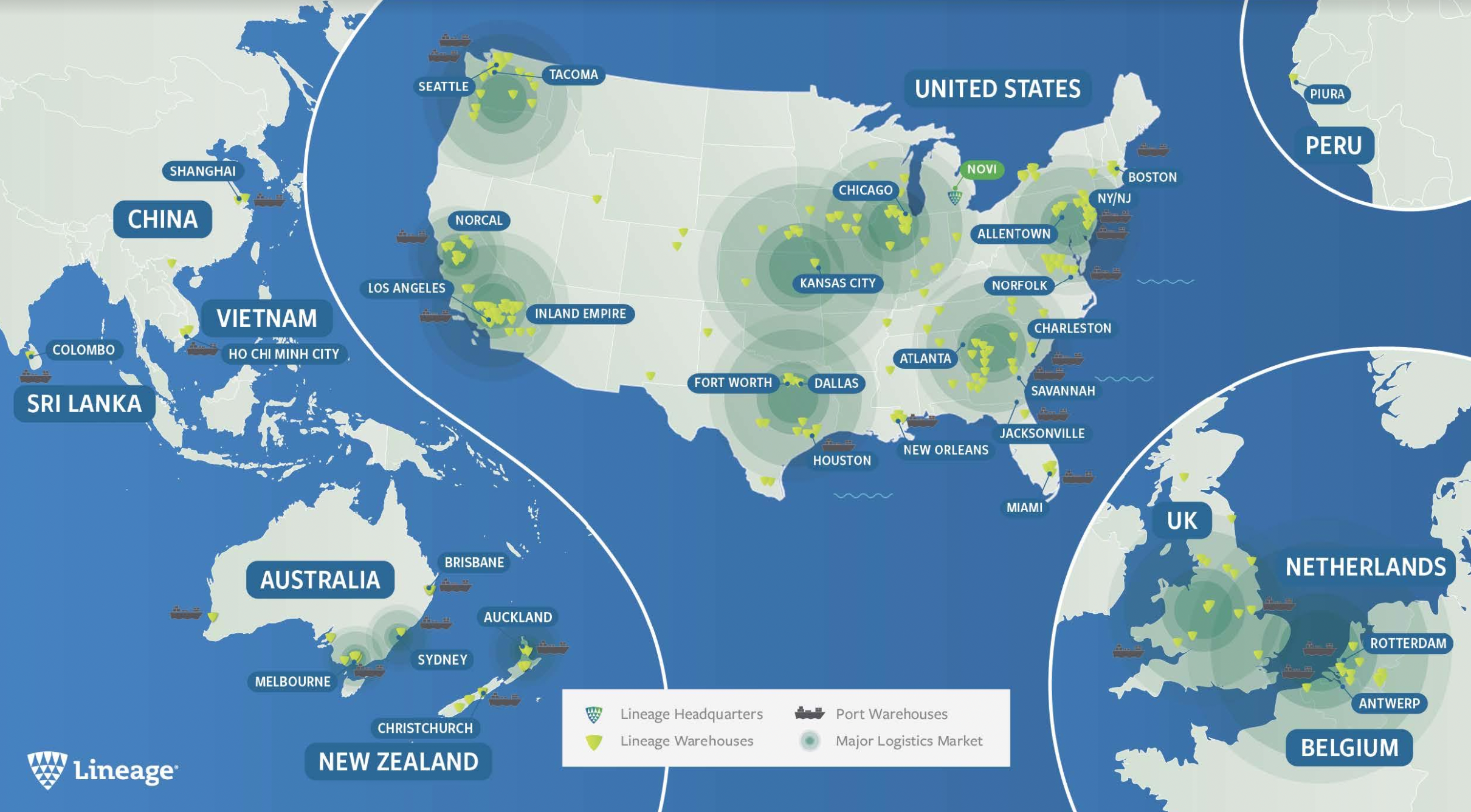Research Project
Climate Change Resiliency Assessment for Cold Food Storage and Logistics
Abstract
Recent events such as the COVID-19 pandemic, California wilfires, and the Texas energy crisis have highlighted the importance of implementing resilience strategies across our global portfolio in response to increasing volatility. We believe that global climate change and its cascading effects are among the most serious threats to global food security. Because of the complex and heterogeneous impacts that the climate can have on the world’s food supply, Lineage needs to better understand our long- and short-term geographical exposure to climate risk in order to take preventative action and avoid potential breakdowns in the cold chain.
Research Team
Lead Researchers
- Bingbing Li, Manufacturing Systems Engineering
Collaborators
- Dr. Alex Woolf, Mrs. Nadia Bolis, at Lineage Logistics
- Dr. G.P. Li, Dr. Richard Donovan, Dr. Yoon Kim at University of California Irvine
- Dr. Krystel Castillo at University of Texas San Antonio
Student Team
- Mitesh Sawant, Engineering Management
- Paula Logozzo, Mechanical Engineering
Funding
- Lineage Logistics

Alignment, Engagement and Contributions
Research Questions and Objectives
Research Methods
The human food web is a complex adaptive system that couples human and natural processes and spans the three dimensions of sustainability (Environment, Economy, and Society) as well as a broad range of spatial and temporal scales. This heterogeneity calls for a comprehensive systems approach that will include:
- Sustainability Analysis
- Life Cycle Analysis (LCA), Virtual Cold Chain (VCC) analysis, and Life Cycle Cost (LCC) analysis
- Supply Chain Mapping, i.e., the first component of Supply Chain Modeling
Research Deliverables and Products
-
Publications, Presentations, and other Products and Current/Anticipated
Research Timeline
2 year project 10/27/2021-10/26/2023.
Research Team
Lead Researchers
- Bingbing Li, Manufacturing Systems Engineering
Collaborators
- Dr. Alex Woolf, Mrs. Nadia Bolis, at Lineage Logistics
- Dr. G.P. Li, Dr. Richard Donovan, Dr. Yoon Kim at University of California Irvine
- Dr. Krystel Castillo at University of Texas San Antonio
Student Team
- Mitesh Sawant, Engineering Management
- Paula Logozzo, Mechanical Engineering
Funding
- Lineage Logistics
